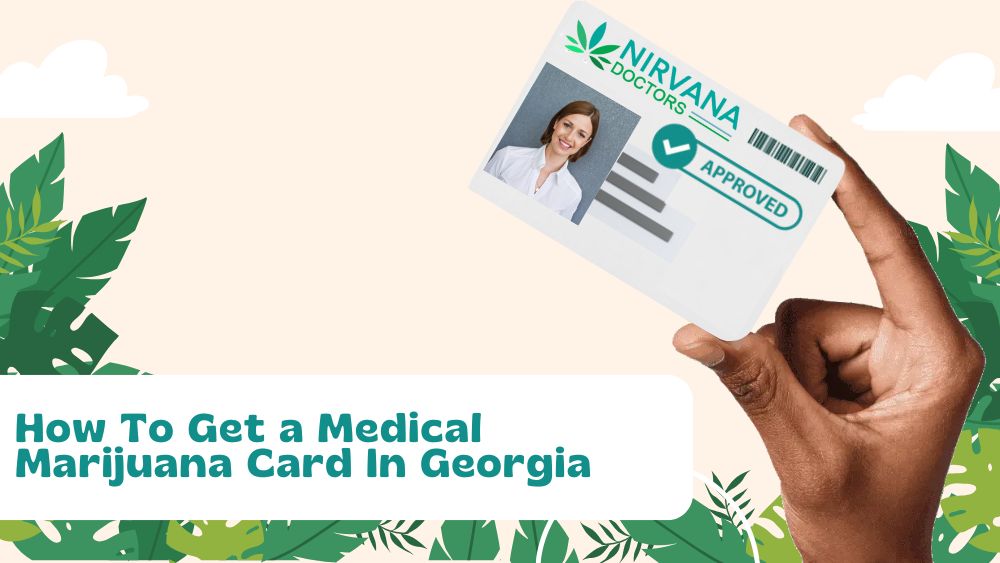As the landscape of medical marijuana continues to evolve, Georgia is at the forefront of adapting its regulations and services to meet the needs of patients seeking relief. The state has implemented a structured medical marijuana program aimed at providing access to therapeutic benefits for qualifying individuals. In this article, we will provide a comprehensive guide on obtaining a medical marijuana card in Georgia as of 2025, focusing on the updated qualifying conditions, application process, and the importance of consulting with a healthcare provider.
Overview of Georgia’s Medical Marijuana Program
Georgia’s medical marijuana program, established in 2015, allows patients with certain medical conditions to access low-THC cannabis oil for therapeutic use. The program has gradually expanded, enabling more residents to benefit from medical marijuana. With ongoing legislative changes, it’s essential for prospective applicants to stay informed about the most current rules and regulations.
Updated List of Qualifying Conditions for 2025
As of 2025, the list of qualifying conditions for obtaining a medical marijuana card in Georgia has been updated. Patients must have a diagnosis from a licensed healthcare provider for one of the following conditions:
- Cancer: Patients undergoing treatment or with terminal cancer can qualify.
- Epilepsy: Those suffering from severe seizures that are difficult to control with standard treatments.
- Multiple Sclerosis (MS): Patients experiencing debilitating symptoms related to MS.
- Parkinson’s Disease: Individuals diagnosed with this progressive neurological disorder.
- Post-Traumatic Stress Disorder (PTSD): Qualifying conditions include severe anxiety or distress resulting from traumatic experiences.
- HIV/AIDS: Patients suffering from symptoms associated with HIV or AIDS.
- Chronic Pain: Individuals with chronic pain conditions that significantly impair their daily activities.
- Nausea or Vomiting: Conditions causing severe nausea or vomiting that are resistant to traditional medications.
- Crohn’s Disease: Patients with this inflammatory bowel disease may also qualify.
- Other Medical Conditions: As per the discretion of a healthcare provider, other conditions may also be considered.
Step-by-Step Guide to Apply for a Medical Marijuana Card
Applying for a medical marijuana card in Georgia involves several key steps:
Step 1: Consult a Licensed Healthcare Provider
The first and most crucial step is to consult a licensed healthcare provider who is registered with the Georgia medical marijuana program. This consultation will help determine if you qualify for a medical marijuana card based on your medical history and current symptoms.
Step 2: Obtain a Medical Record
Your healthcare provider will need to document your qualifying condition in your medical record. This documentation is critical for the application process.
Step 3: Complete the Application Form
Once you have the necessary documentation, you can complete the application form available on the Georgia Department of Public Health (DPH) website. Make sure to provide accurate information and attach all required documents.
Step 4: Submit the Application and Pay the Fee
Submit your completed application along with the associated fee (usually around $25) to the Georgia DPH. Ensure you keep a copy of your application for your records.
Step 5: Wait for Approval
After submission, the DPH will review your application. If approved, you will receive your medical marijuana card by mail. This process can take several weeks, so patience is essential.
Legislative Changes in 2025
In 2025, Georgia enacted significant changes to its medical marijuana legislation, including streamlining the application process and expanding the list of healthcare providers who can recommend medical marijuana. These updates are aimed at improving access and ensuring that more patients can benefit from the program.
Importance of Consulting a Licensed Healthcare Provider
Consulting a licensed healthcare provider is vital for several reasons:
- Expert Guidance: Healthcare providers can help determine the best course of treatment for your specific condition.
- Safety: They can inform you about potential interactions with other medications.
- Legal Compliance: Ensuring that you meet all requirements for obtaining a medical marijuana card is essential for compliance with state laws.
Conclusion
Obtaining a medical marijuana card in Georgia is a structured process designed to ensure that patients receive the appropriate care. With updated qualifying conditions and legislative changes in 2025, it is more important than ever to consult with a licensed healthcare provider and stay informed about the application process. By doing so, patients can gain access to the therapeutic benefits of medical marijuana safely and legally.
Frequently Asked Questions (FAQs)
-
What is a medical marijuana card?
A medical marijuana card allows patients to legally purchase and use medical marijuana in Georgia.
-
How long is the medical marijuana card valid?
The card is typically valid for two years, after which it must be renewed.
-
Can I apply for a medical marijuana card if I have more than one qualifying condition?
Yes, patients with multiple qualifying conditions can apply.
-
Is there an age limit for obtaining a medical marijuana card?
Yes, patients must be at least 18 years old, but minors can apply with parental consent.
-
Do I need to provide proof of residency?
Yes, proof of residency in Georgia is required when applying.
-
Can I grow my own medical marijuana in Georgia?
No, Georgia does not permit patients to cultivate their own cannabis plants.
-
Are there restrictions on where I can use medical marijuana?
Yes, consumption is typically restricted to private residences.
-
Can I travel with my medical marijuana card?
Medical marijuana is not legal in all states; check local laws before traveling.
-
What happens if my application is denied?
You can appeal the decision or seek guidance from your healthcare provider.
-
How can I find a registered healthcare provider?
The Georgia DPH website provides a list of licensed providers who can recommend medical marijuana.
